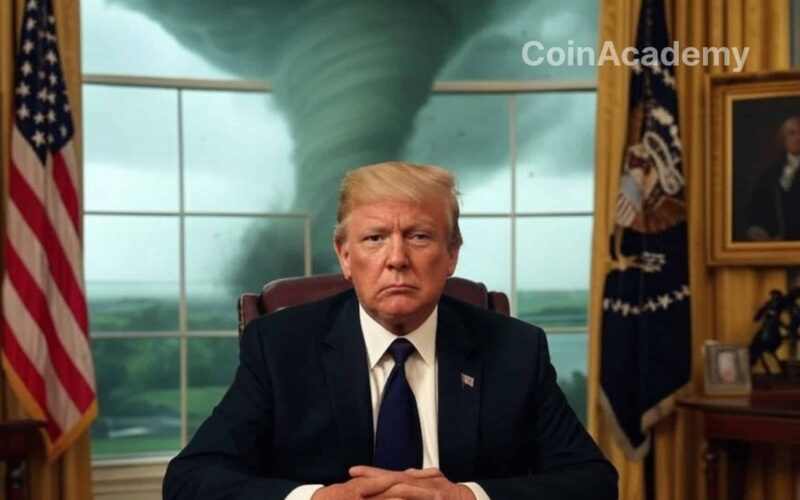The US Department of the Treasury has officially removed Tornado Cash from its blacklist, marking an unexpected turn in one of the most sensitive crypto regulation cases. The mixing tool, accused of laundering stolen funds on behalf of the North Korean Lazarus Group, had been targeted multiple times with sanctions from the Office of Foreign Assets Control (OFAC). This lifting of sanctions follows a November 2024 court ruling by a federal appeals court that stated Tornado Cash’s smart contracts cannot be considered ‘foreign property’.
L’administration américaine fait marche arrière… partiellement
The US Treasury Department officially removed Tornado Cash from its blacklist on Friday, marking an unexpected turn in one of the most sensitive crypto regulation cases. The mixing tool, accused of laundering stolen funds on behalf of the North Korean Lazarus Group, had been targeted multiple times with sanctions from the Office of Foreign Assets Control (OFAC). This lifting of sanctions follows a November 2024 court ruling by a federal appeals court that stated Tornado Cash’s smart contracts cannot be considered ‘foreign property’.
Un revirement juridique à portée limitée
The Fifth Circuit Court of Appeals’ ruling has weakened the legal basis on which OFAC relied to sanction Tornado Cash. In response, the Treasury removed over 100 Ethereum addresses from the Specially Designated Nationals (SDN) list, used to ban transactions with entities deemed threatening. However, this retreat does not imply absolution: the Treasury expressed ongoing concern regarding hacking and money laundering operations conducted by North Korea, affirming its determination to continue protecting the digital asset industry against such abuses.
Roman Storm remains under the watchful eye of justice
Despite the lifting of sanctions, the criminal trial against Roman Storm, co-founder of Tornado Cash, is still ongoing. The hearing is scheduled for July. Accused of conspiring to violate US sanctions by developing Tornado Cash’s infrastructure, Storm attempted to have the charges against him dismissed following the Fifth Circuit’s decision. His request was rejected in February by Judge Katherine Polk Failla, who ruled that while the sanctions against Tornado Cash as a standalone entity were invalidated, it did not affect the conspiracy charges related to the sanctions targeting the Lazarus Group directly.
Une victoire technique qui relance le débat sur les protocoles décentralisés
This partial lifting of sanctions raises fundamental questions about the legal nature of decentralized protocols. The fact that Tornado Cash, as autonomous and without centralized governance, cannot be designated ‘property’ of a state actor challenges certain traditional tools of international law. However, the Treasury does not intend to let its guard down: in a court document published on Monday, it warns that completely canceling the designation could have ‘disruptive consequences’ for national security.




